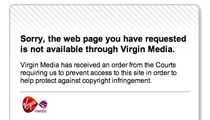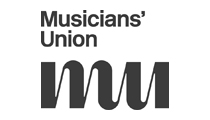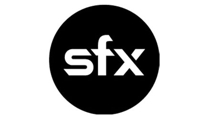This website uses cookies so that we can provide you with the best user experience possible. Cookie information is stored in your browser and performs functions such as recognising you when you return to our website and helping our team to understand which sections of the website you find most interesting and useful.
Tuesday 23 June 2015, 10:06 | By Andy Malt
Approved: The Chemical Brothers & St Vincent – Under Neon Lights
CMU Approved

The two tracks previously released from the new Chemical Brothers album – ‘Sometimes I Feel So Deserted’ and ‘Go’ – have suggested that it will be good. The third, ‘Under Neon Lights’, cements it.
Posted yesterday, the track features Annie Clark, aka St Vincent, and sees the normally guitar-led singer adapt quite happily to the Chems’ massive electronic sound.
“We’re always looking to work with likeminded people who do something a bit different to us”, says the duo’s Tom Rowlands. “Annie is an amazing artist who was very up for experimenting”.
The album, ‘Born In The Echoes’, is due out on 17 Jul. Check out ‘Under Neon Lights’ now.
READ MORE ABOUT: St Vincent | The Chemical Brothers
Tuesday 23 June 2015, 10:02 | By Chris Cooke
Australia passes web-blocking laws
Business News Digital Legal Top Stories

Hey Australia, worry not, we’ve had web-blocking for ages now, and it’s not resulted in the entire internet being censored offline by the sinister rights lobby.
Partly because the point is to block websites where people nick other people’s movies and music, not to censor or hinder creativity or shut down each and every digital locker. And partly because it’s really easy to circumvent the blockades. Look, I just downloaded you all the series finale of ‘Game Of Thrones’ via Kickass Torrents to prove it. Everyone dies, by the way.
So yes, as expected, Australia’s Senate has just passed the Copyright Amendment (Online Infringement) Bill 2015 which brings a web-blocking system into effect in the country. Which means that rights owners can request that copyright infringing websites based beyond the jurisdiction of the Australian courts be blocked by ISPs, so that consumers can no longer access sites like the aforementioned Kickass and the always contentious Pirate Bay.
Web-blocking, of course, has become a preferred anti-piracy tactic in a number of European countries where the courts can already issue injunctions ordering ISPs to block offending sites. In the UK, Parliament actually rejected web-blocks (pretty much) when the Digital Economy Act was on the table in 2010, but the movie industry proved they were possible under existing copyright laws, and since then the music business has secured a plethora of blockades. And a number of other European countries have followed suit.
Nevertheless, web-blocking remains controversial, especially in those countries still considering such measures (you’ll remember all the hoo and the haa that occurred when a similar system was proposed in the US back in 2012).
Critics worry that websites that are primarily legitimate concerns, but which might inadvertently infringe or enable infringement, including search engines, digital lockers and user-generated content platforms, could get caught up in blocking crusade. Though in the main the sites content owners request be blocked are usually pretty conventional file-sharing sites clearly set up to provide access to copyright infringing music and movies.
People also argue that the web-blocks don’t work (former Pirate Bay spokesman Peter Sunde argued just that when asked about the new Aussie rules earlier this week). It’s true that it’s pretty easy to circumvent the blockades, but right owners say that the blocks still send out an important message. And if only Google would play ball and remove from its search results the proxies that make getting round the blocks so easy, the whole system would be a damn site more effective.
In the Australian Senate, the Greens led the opposition to the web-blocking plans, also proposing a number of amendments. In addition to the usual concerns about web-blocks, critics raised some other issues too, including the lack of clarity on who will pay for the blocking. But in the end the new measures passed 37 in favour to thirteen against.
Simon Bush of the Australian Home Entertainment Distributors Association predictably welcomed the new laws, telling the Sydney Morning Herald: “This is a watershed moment. It’s a fantastic day and a really positive sign for the creative content industry, who can invest more as a result”.
But Scott Ludlam of the Australian Greens reaffirmed his opposition to the plans, saying: “There is increasing evidence to suggest that site-blocking is not the most effective means of stopping piracy. The only effective way to deal with copyright infringement on the kind of scale that the government is concerned about is to just make content available: conveniently, affordably and in a timely way”.
Australia is relatively late to the anti-piracy party, but the government there is now being particularly proactive on the issue, also pressuring ISPs to send out warning letters to suspected file-sharers. The web-blocking legislation will now be sent to the Governor-General for royal assent and then become law. Unless, of course, there is a last minute intervention from Taylor Swift. Because as you know, nothing is certain these days until Taylor Swift has spoken.
READ MORE ABOUT: Copyright Amendment (Online Infringement) Bill 2015
Tuesday 23 June 2015, 10:01 | By Andy Malt
Deadmau5 reaches settlement with Disney over trademark dispute
Business News Legal

Joel Zimmerman, aka Deadmau5, and Disney have “amicably resolved their dispute” over the producer’s attempt to trademark his mouse head logo, a legal rep has confirmed to The Hollywood Reporter.
As previously reported, Disney lodged its opposition to Zimmerman’s then over a year old trademark application in September last year. The company argued that the existence of two logos featuring mice with big ears in the world would confuse everyone. The producer and his legal team pointed out that he had been using the logo, based on his on-stage headgear, for almost a decade without issue.
The producer then responded with his own lawsuit against Disney, after noticing that the company had put a clip from one of its TV shows featuring his music on YouTube. While the music had been licensed for TV broadcast, it was not licensed for subsequent online use. “Let’s test a theory. It takes em ten years to oppose a trademark, let’s see how long it takes em to take down a video”, Zimmerman tweeted at the time. Fairly quickly, it turned out.
Since then, behind the scenes negotiations have clearly continued, which has resulted in this amicable settlement. Exact details have not been revealed yet, but Disney will apparently remove its opposition of the application.
The news comes less than a week after Zimmerman went needlessly legal with a comedy musical playing at the Toronto Fringe next month, called ‘Deadmouse: The Musical’.
READ MORE ABOUT: Deadmau5 | Disney
Tuesday 23 June 2015, 09:59 | By Andy Malt
Sean ‘Diddy’ Combs charged with assault
Artist News Legal

Sean ‘Diddy’ Combs has been arrested in LA, after becoming involved in an argument with his son’s American football coach at UCLA.
According to TMZ, Combs confronted an assistant coach who had been shouting at his son, who plays for the university’s team. The two men then became involved in a physical fight, which resulted in Combs being arrested on charges of assault with a deadly weapon.
In a statement, UCLA later said: “Shortly after 12:30pm today, Sean Combs (also known as P Diddy) was arrested at UCLA’s Acosta Athletic Training Complex on a charge of assault with a deadly weapon, which was a kettlebell. No one was seriously injured and UCPD is investigating. Combs is expected to be transported to the Los Angeles County Sheriff’s Department Inmate Reception Center later this evening”.
A kettlebell, should you be wondering, is an item of weightlifting equipment. Basically, it’s a heavy ball with a handle and looks like it would hurt if you were hit with one.
Coach Jim Mora added: “I’m thankful that our staff showed the level of professionalism that they did in handling this situation. This is an unfortunate incident for all parties involved. While UCPD continues to review this matter, we will let the legal process run its course and refrain from further comment at this time”.
According to the LA Times, Combs’ charges were subsequently updated to be three counts of assault with a deadly weapon, one count of making terrorist threats and one count of battery. He has now been released on bail.
READ MORE ABOUT: Sean Combs
Tuesday 23 June 2015, 09:58 | By Chris Cooke
BMG signs Dave Stewart
Business News Deals Labels & Publishers

Dave Stewart has signed a “wide-ranging agreement” with BMG, because why wouldn’t you? See, you can’t think of one reason can you? So that’s why.
It’s a “multi-faceted” deal, and amongst the facets of which there are multiple, BMG will administer Stewart’s publishing rights past and future, look after the song rights that stem from a new talent show he’s producing called ‘Songland’, work with him on his “creative social network” venture Talenthouse, and record a concert of his in Berlin.
BMG’s sister company Penguin Random House will then publish his autobiography and Stewart will be a brand ambassador for BMG and the wider Bertelsmann business. Which, I think we can all agree, is definitely a lot of facets.
Says BMG boss Hartwig Masuch: “Dave Stewart’s enormous range of accomplishments is a reminder that in our connected world, music no longer exists in its own self-contained bubble. With the backing of Bertelsmann, BMG is committed to helping artists and writers capitalise on the vast number of opportunities now open to them”.
Says the man that is Dave Stewart: “BMG takes music publishing on to a new level. It’s creative, transparent and fair and no other music company can offer a multi-platform deal like this. Many companies talk about synergy, but few have pulled it off. BMG is a new company with a new approach, but at heart it’s a music company which really understands artists”.
Remember when Dave Stewart launched a musical bank? No, me neither.
READ MORE ABOUT: BMG | Dave Stewart
Tuesday 23 June 2015, 09:57 | By Andy Malt
Manners McDade signs publishing deal with Fabric’s Houndstooth label
Business News Deals Labels & Publishers

Manners McDade has signed a deal to administer the publishing rights of artists signed to Fabric’s Houndstooth label, on behalf of Fabric Publishing.
Fabric Worldwide MD Rob Butterworth said in a statement: “We’re very excited to be working with Manners McDade, after meeting the team it was an easy decision for us to make. We’re delighted to be joining such a strong roster of clients and benefit from their huge wealth of experience. We’re looking forward to a long and fruitful relationship together”.
Manners McDade’s Cathering Manners added: “The Houndstooth catalogue sits very naturally alongside our own roster of writers and artists and we very much look forward to developing a long term relationship with Rob and his team”.
Other labels whose publishing rights are represented by Manners McDade include One Little Indian, Ghostly International and Morr Music.
READ MORE ABOUT: Fabric | Houndstooth | Manners McDade
Tuesday 23 June 2015, 09:56 | By Chris Cooke
MU lobbies for agent of change principle
Business News Live Business

Fresh from its success in the High Court over the private copy right, the Musicians’ Union has been pursuing another of the issues high up its agenda, lobbying Parliament and government over the so called ‘agent of change’ principle.
One of the top issues raised during the #VoteForMusic campaign in the run up to the recent General Election – as revealed at The Great Escape last month – the agent of change principle is the idea that if property developers plonk new residential buildings next to existing live music venues, they should have a legal and financial responsibility to provide whatever sound proofing is necessary to ensure the venue and future residents can co-exist.
It’s an attempt to overcome the increasing occurrence whereby people move in next to a music venue, possibly because the music venue has helped make a previously undesirable part of town attractive again, and then complain about the noise, often forcing said venues to cut back their music programmes or shut down entirely. Not least because grassroots music venues rarely have the budgets required to pay for costly sound proofing to be put in. A flurry of venues have faced this challenge in recent years, and several more are set to in the near future.
Commenting on the MU’s bid to introduce the agent of change principle, which already exists in Australia, over here, the Union’s General Secretary John Smith said yesterday: “Music venues across the country are vitally important – both for musicians and bands who rely on them for their livelihoods and for music fans and local communities”.
He went on: “Venues must, of course, stick to the terms of their licence and residents must be able to complain if they do not comply or are causing a genuine nuisance. But a growing number of well-established venues have been forced to close or to undertake expensive noise reduction work as a result of noise complaints and abatement notices served by new developments. We would like the government to consider introducing the agent of change principle in order to help protect these important cultural spaces”.
READ MORE ABOUT: Musicians Union (MU)
Tuesday 23 June 2015, 09:54 | By Andy Malt
Concert photographer criticises Taylor Swift’s rights demands
Business News Media
The world rejoiced this weekend of course, when Taylor Swift singlehandedly took on the might of Apple and won, the tech giant definitely not just doing something it was planning on doing anyway (ie capitulating on the royalty free summer) but grabbing extra PR points by pretending it was responding to one popstar rather than thousands of labels.
Oh, but look at me being all cynical. And either way, Swift’s letter calling for fairer terms from Apple Music, regardless of what actual impact it had, was indeed a well-written, passionately delivered and much-needed show of support by a big name musician for grass roots artists, songwriters, labels and publishers.
There are numerous reasons why Swift was the only big pop name to do this, not least because, before you start calling out big companies on unfair practices, you need to be pretty sure your own business dealings are in fine order first. And for the most part, Swift’s quite probably are. But there’s always going to be a weak spot, and in this case it is the agreement she apparently asks photographers to sign before they document her live shows.
As Swift’s open letter was being circulated over the weekend, freelance photographer Jason Sheldon wrote his own. “I have read your open letter to Apple where you give your reasons for refusing to allow your album ‘1989’ to be included on their forthcoming Apple Music streaming service”, he wrote. “I applaud it. It’s great to have someone with a huge following standing up for the rights of creative people and making a stand against the corporate behemoths who have so much power they can make or break someone’s career”.
But after the compliments, he posted portions of the photographer agreement he had been asked to sign before attending one of the popstar’s concerts. This stated that he could only licence photographs taken at the show once to the publication that commissioned him. After that, all rights in the pictures must be handed over to Swift for her own use forever more.
“You say in your letter to Apple that ‘three months is a long time to go unpaid'”, continued Sheldon. “But you seem happy to restrict us to being paid once, and never being able to earn from our work ever again, while granting you the rights to exploit our work for your benefit for all eternity”.
Clarifying the problem in a later update, he added: “As a freelance photographer, I am asked to photograph concerts by publications. I get paid IF and when the photos are used, not for turning up to a show and shooting it. Therefore, if the newspaper has a bigger story to run and doesn’t have enough room to use my photo, I don’t get paid”.
“When I’m not allowed to do anything else with the photos, that means I’ve incurred expenses to work, which I can’t recover”, he continued. “Therefore preventing me from licensing my photos to more than one publication, or even (as later versions of this contract stipulate) preventing me from using the images for my own self-promotion in a portfolio etc while they can use them without licensing the usage is highly unfair and unjustified”.
Concluding the original letter, he echoed the closing sentiment of Swift’s plea to Apple: “With all due respect to you Taylor, you can do the right thing and change your photo policy. Photographers don’t ask for your music for free. Please don’t ask us to provide you with your marketing material for free”.
Such agreements over the rights in photographs taken at gigs are not something solely demanded by Swift, nor is it something particularly new. Jane’s Addiction made such demands on their reunion tour in 2009 and in 2012, and The Stone Roses were heavily criticised by photographers for asking them to sign similar agreements that would turn over all rights in pictures taken of the band in return for a payment of £1.
And earlier this year, photographer Pat Pope publicly called out Garbage and their management for asking to print some of his early pictures of the band in a new book, on the grounds that he had already been paid for taking them in the first place.
Though as yet, Swift is yet to comment on the criticism of her photographer contracts.
READ MORE ABOUT: Jason Sheldon | Taylor Swift
Tuesday 23 June 2015, 09:51 | By Andy Malt
Ed Sheeran’s ‘Thinking Out Loud’ spends a full year in the Top 40
Artist News Digital Labels & Publishers

Ed Sheeran has become the first ever artist to have a single in the UK Top 40 for a full year with ‘Thinking Out Loud’. I know, I’d have thought that had happened before too, but apparently not. Pharrell’s ‘Happy’ got close with 49 weeks, but 49 weeks is not enough.
The track also holds the record for the longest ever climb to the number one slot, according to the Official Charts Company. It entered the chart at number 26 in June last year, and took nineteen weeks to get to the top. Now, 52 weeks after its first appearance, it’s at number 28.
More stats? OK, its lowest position in all that time was number 32 two weeks ago, and in total the track has had combined sales and streams of 1.65 million. That number might seem a bit strange, but it is of course the inclusion of streams along with sales in the chart that have allowed this to happen. The single’s slow rise is also down to the fact that the album’s popularity on streaming services meant the track charted months before it was officially released as a single.
So, well done Ed, have a biscuit and a slice of cake. Maybe even a slice of biscuit cake. Is biscuit cake a thing? Well, if it’s not, I’m sure Ed can change that. And if not, Taylor Swift definitely could.
READ MORE ABOUT: Ed Sheeran | Official Charts Company
Tuesday 23 June 2015, 09:43 | By Andy Malt
CMU’s One Liners: New Janet Jackson, Zun Zun Egui split, Annie Nightingale compilation, and more
Artist News Gigs & Festivals One Liners Releases

Other notable announcements and developments today…
• Approved earlier this year, Zun Zun Egui have announced that they are splitting up. “After seven amazing years the stresses and strains of touring and working together have taken their toll and we feel it is time to go our separate ways and pursue other dreams and projects”, the band said in a Facebook post.
• Janet Jackson has released the first music under that there new deal with BMG and it’s a track called ‘No Sleeep’.
• Kill J have released the video for new track ‘Cold Stone’.
• Annie Nightingale recently confirmed that she is marking 50 years in broadcasting with a new compilation on Ministry Of Sound. Here’s a video trailer.
• Former Pipette Gwenno will release her debut solo album, ‘Y Dydd Olaf’, on 24 Jul. She’ll be heading out on a co-headline tour with H Hawkline in September.
• Purity Ring have announced another run of UK shows, including one at The Roundhouse in London on 29 Oct.
• Every Time I Die have announced a UK tour in November, which will conclude with three shows in different venues around London.
READ MORE ABOUT: Annie Nightingale | Every Time I Die | Gwenno | H Hawkline | Janet Jackson | Kill J | Purity Ring | Zun Zun Egui
Tuesday 23 June 2015, 09:40 | By Chris Cooke
People stream David Guetta tracks quite a lot, shocker
And Finally Artist News Digital

David Guetta has just passed the all important two billion plays landmark on Spotify, only the third artist to ever do so. And it is “all important”. It really is.
Just because you, me, my mum, your mum, that bloke I spoke to on the tube last night, Francis, Marc, Mildred, all the guys at my local Pret, the 47 people who were conveniently sitting on the number 47 bus this morning, the entire population of Malta, everyone in this office, everyone in your office, my old history teacher, Piers Morgan, Bill Maher, Jennifer Aniston, everyone taking a flag to Glastonbury this weekend, everyone performing at the Edinburgh Fringe this August, everyone whoever read a Harry Potter book, the entire House Of Lords, those currently on bail for minor thefts, climate change deniers, pigeon fanciers, deep sea divers, quilt makers, and pretty much everyone outside Guetta’s marketing team and Spotify’s PR office, including even the craziest of the French, couldn’t give the slightest shit about it, that doesn’t stop it being all important.
Though please note: this information is pending guidance from Taylor Swift. We’ll keep an eye on her Tumblr. It may as yet turn out it isn’t all that important after all.
READ MORE ABOUT: David Guetta | Spotify
Monday 22 June 2015, 11:08 | By Andy Malt
Approved: The Radio Dept
CMU Approved

Now, you might have thought that their 2011 singles compilation sounded the death knell for The Radio Dept. It certainly looked like they’d fizzled out, with no new releases following and the live shows eventually tailing off. But a change is as good as a rest, they say, and The Radio Dept seem to have had both.
Last year, they returned with their first new single for four years, ‘Death To Fascism’, which saw them make a sharp change of direction into electronic music, built around a sample of Yugoslavian activist Stjepan Filipović. Then last week they released a new EP, ‘Occupied’, which further expands on that new sound.
The EP’s seven minute title track is a downbeat house number, pulling between trying to make you dance and trying to make you sit down and have a good think about what you’re doing with your life.
Listen to ‘Occupied’ here:
READ MORE ABOUT: The Radio Dept
Monday 22 June 2015, 10:56 | By Chris Cooke
Apple u-turns on royalty free trial after Taylor Swift speaks
Business News Digital Labels & Publishers Top Stories

So after a week of stern statements, critical commentaries and veiled threats from across the music industry, in the end it took just one short letter from Taylor Swift. Perhaps she could get online and declare government austerity counter-productive, peace for our time in the Middle East, and Dave Grohl’s leg unbroken, and we could all get on with living in a better world.
So yes, following the news last week that Swift – a famous critic of freemium streaming – was withholding her latest album from Apple’s big new music service in protest at the tech giant’s proposal it pay no royalties at all during the planned three month trial period for Apple Music, the singer published an open letter on Tumblr this weekend to make her objections more explicit.
Noting, as had all of Apple Music’s detractors in the indie community, what a great partner iTunes had been in the past, Swift told her fans: “I’m sure you are aware that Apple Music will be offering a free three month trial to anyone who signs up for the service. I’m not sure you know that Apple Music will not be paying writers, producers, or artists for those three months. I find it to be shocking, disappointing, and completely unlike this historically progressive and generous company”.
Insisting her shock and disappointment was on behalf of the wider artist community, she continued: “This is about the new artist or band that has just released their first single and will not be paid for its success. This is about the young songwriter who just got his or her first cut and thought that the royalties from that would get them out of debt. This is about the producer who works tirelessly to innovate and create, just like the innovators and creators at Apple are pioneering in their field… but will not get paid for a quarter of a year’s worth of plays on his or her songs”.
Conceding that Apple isn’t including a Spotify-style freemium strand in its new streaming service, which is good news given her well documented distain for free streams, she went on: “[But] three months is a long time to go unpaid, and it is unfair to ask anyone to work for nothing. I say this with love, reverence, and admiration for everything else Apple has done. I hope that soon I can join them in the progression towards a streaming model that seems fair to those who create this music. I think this could be the platform that gets it right”.
Apple had been, in the main, pretty quiet as indie label trade groups around the world lined up last week to criticise the royalty-free three month trial, but this time the firm was quick to respond, with its Senior VP Of Internet Services And Software Eddy Cue quickly tweeting to declare his new streaming service would, after all, “pay artists for streaming, even during a customer’s free trial period”.
He subsequently told Billboard: “When I woke up this morning and saw what Taylor had written, it really solidified that we needed a change. And so that’s why we decided we will now pay artists during the trial period”. So that’s all sorted then.
“I am elated and relieved”, Swift tweeted within the hour, Cue having seemingly called the singer, just in case she missed his tweet.
Apple had told rights owners that while the royalty-free three-month trial period was a big ask – most other streaming services have a one-month free trial – it would compensate the music industry down the line by paying a slightly higher revenue share, it being common practice to play one part of a streaming deal off against another (as explained in this CMU trends article here).
This likely played a key role in convincing the majors to sign up to the royalty free period, they being in a better position to take a hit now in return for a future revenue boost. But even though it has now back-tracked on the royalty free trial offers, Apple still seems to be offering the slightly higher revenue share as well.
That will presumably have a not insignificant impact on the tech giant’s bottom line, though the Swift-inspired about-turn has garnered Apple Music plenty of very valuable PR points as it ramps up to launch its big new music play, leading many to speculate that the whole thing was a publicity stunt. Or at least, Cue and co had been ready to capitulate in response to mounting pressure from the indies worldwide, but being able to spin it as a Swift-placating move was a nice plus.
Though arguably the whole debacle was caused by bad communications in the first place, with the indies as annoyed about the deal being dropped so late in the day – pretty much fait accompli – as they were about the actual terms. And there remain some questions about how the Beats 1 radio station is being licensed, about what the publishing deals look like, and as to why the labels would post audio or video to Apple Music Connect royalty free, when YouTube and even SoundCloud now provide options to monetise such promotional activity.
But if nothing else, all this might result in a flurry of sign ups to Apple Music next week just to see which indie artists on are there.
For a further recap of the Apple Music story prior to Swift’s letter, listen to last week’s edition of the CMU Podcast here.
READ MORE ABOUT: Apple | Apple Music | Eddy Cue | Taylor Swift
Monday 22 June 2015, 10:55 | By Chris Cooke
MU chief welcomes High Court’s private copy right ruling
Business News Digital Labels & Publishers

The General Secretary of the Musicians’ Union, John Smith, has welcomed the High Court ruling last week which declared that the British government’s decision to introduce a private copy exception into UK copyright law without compensation for the music community was unlawful.
As previously reported, the court ordered that the government review its policy on the private copy right after the MU, BASCA and UK Music successfully argued that ministers had not sufficiently justified why the new copyright exception that allows consumers to legally rip tracks from their CDs was not accompanied by a levy system to benefit the music industry. Such a levy system exists in other European countries and EU law seeks to harmonise copyright systems across the European Union.
Smith told reporters: “I am delighted that the High Court has today agreed with us that government acted unlawfully. The MU has been leading calls for fair compensation to accompany any private copying exception for years now, and today marks a significant step in the right direction”.
He went on: “It’s a sobering thought that despite the fact that the British music industry is worth £3.8bn GVA, and despite the outstanding international reputation for British musicians, more than half of MU members still earn less than £20,000 a year from their profession. We have one of the best music industries in the world. The government should be making it easier to survive as a musician – not harder”.
He concluded: “The private copying exception that they had introduced without fair compensation put UK performers at a significant disadvantage, and I’m proud that the MU was part of the team that successfully challenged it”.
For its part, the government’s Department For Business, Innovation & Skills said in a statement on Friday: “The government is disappointed by the ruling on the private copying exception, but respects the opinion of the court. We are considering the implications of the ruling and the available options”.
MusicTank will put the spotlight on the private copy exception, and how levies might be charged in the digital age, this Thursday, info here.
READ MORE ABOUT: John Smith | Musicians Union (MU)
Monday 22 June 2015, 10:52 | By Chris Cooke
Former Pirate Bay man says new Aussie anti-piracy rules won’t work
Business News Digital Legal

Having now served his time, former spokesman for The Pirate Bay Peter Sunde has been busy explaining why new anti-piracy measures in Australia won’t work.
Sunde was responding in particular to rules expected to pass the country’s Senate this week that will put in place a system for blocking access within its borders to piracy websites based outside Australia, replicating the sort of web-blocking process that has become the norm in many European countries, not least the UK. The web-blocking legislation accompanies other moves in Australia to force net firms to send warning letters to suspected online copyright infringers.
Speaking to Laterline on ABC, Sunde said that the new laws would be unpopular with voters, and wouldn’t work anyway. “For instance, in Denmark they tried to block Pirate Bay”, he mused. “What happened is that people found very easy ways to circumvent the block, and the traffic from those countries to Pirate Bay spiked afterwards”.
He went on: “People aren’t stupid and there’s really easy alternatives to circumvent most of these laws. So it becomes a kind of whack-a-mole game, and like a nuclear arms race as well, because you will have to block the next thing that will help people to circumvent things”.
Web-blocking hasn’t been without controversy in Europe of course, with critics questioning how effective forcing ISPs to block access to piracy sites really is, given proxies for circumventing the blockades are so easy to find on Google. Though rights owners insist web blocking still plays an important role in educating people as to which sites are legit and which are not, while also lobbying the likes of Google to play their part in delisting the proxies.
Sunde was chatting about Australia’s new anti-piracy laws as the file-sharing site he used to help run dropped the www prefix on its domains. With redirects not working for all manifestations of the Bay’s web address it led to a flurry of speculation that the site had been taken offline again. But no, it’s still there, providing you can circumvent any blockades and remember to drop to the www. And if you have no copyright morals to start with, obviously.
READ MORE ABOUT: Peter Sunde | The Pirate Bay
Monday 22 June 2015, 10:49 | By Chris Cooke
Ghanaian reggae singer criticised after saying most legislators use marijuana
Artist News Legal

A popular reggae singer in Ghana, Blakk Rasta, real name Abubakar Ahmed, has been called to appear before a committee of the West African nation’s parliament after saying that most of the country’s legislators use marijuana.
Ahmed, perhaps best known for his song paying tribute to Barack Obama that got him dinner with the American president, made the comments during a conversation on radio station HitzFM. The singer is an advocate of legalising the drug.
But he says his comments on the radio show were misunderstood, telling Reuters: “What I said was that about 80% of parliamentarians all over the world may have used marijuana”. According to the news agency, the musician could be ordered to retract and apologise or face the prospect of prosecution for damaging the reputation of Ghana’s legislature.
READ MORE ABOUT: Blakk Rasta
Monday 22 June 2015, 10:45 | By Chris Cooke
Kobalt signs TV On The Radio for publishing deal
Business News Deals Labels & Publishers

Taylor Swift having now taken over from Kobalt as saviour of the music industry, the music rights firm was freed up to go about signing some bloody good songwriters for some publishing deal action. And it immediately inked a deal with TV On The Radio to rep the songs off their most recent album ‘Seeds’, including offering full creative and sync services on a global basis, which are my very favourite kind of services.
It’s such an exciting deal that all four members of the band were inspired to speak as one, declaring to all that would listen: “We’re very excited to be joining the Kobalt family and look forward to a productive future of creating with them”. What, not thrilled?
Added Kobalt’s Sas Metcalfe: “We are delighted to sign such an artistic and creative group of musicians. Their new album ‘Seeds’ shows off their tremendous songwriting and bold sounds. We are proud to have them with Kobalt”.
READ MORE ABOUT: Kobalt | TV On The Radio
Monday 22 June 2015, 10:44 | By Chris Cooke
Warner/Chappell signs MNEK
Business News Deals Labels & Publishers

Warner/Chappell has signed up Uzo Emenike – who you might know better as MNEK – for a worldwide publishing deal. It follows the release of a solo EP by the producer songwriter last year, and pre-empts an in-development debut album.
Confirming the deal, Warner/Chappell’s Jon Platt told reporters: “MNEK is a phenomenal talent who has co-written some incredible songs for both established superstars and emerging names. All of us at Warner/Chappell are thrilled to team up with such a promising songwriter, producer and artist. He has a bright future and we’re going to help him take his music to a wider audience”.
Meanwhile MNEK himself added: “Warner/Chappell is home to some of my favourite songwriters of all time. I am so happy to be a part of such an esteemed group, and excited about this next phase of my career”.
READ MORE ABOUT: MNEK | Warner Chappell
Monday 22 June 2015, 10:41 | By Chris Cooke
Scarlet Mist returns
Business News Digital Live Business

Ethical ticket exchange Scarlet Mist is back after a new team was formed to run the site, which has an anti-touting philosophy and sets out to enable people who bought a ticket to a show with a genuine intent to attend to sell it on if and when they can no longer make it.
Scarlet Mist was originally launched in 2003, and offered an alternative for people looking to sell on tickets at face value as the world of online touting boomed. It shut in 2011 after fraudsters had used the site to scam ticket buyers, but returned for a time in 2014 until further problems with scammers persuaded founder Richard Marks to put it all on hold again last December.
Three other people have now come forward to help Marks get the service back online, including business consultant Peter Main, web developer Mark Vick and engineer Niall Barclay. The website is now live again just as the summer festival season really swings into action, with plans to overhaul the platform later in the year.
More at www.scarletmist.com
READ MORE ABOUT: Scarlet Mist
Monday 22 June 2015, 10:39 | By Chris Cooke
Bids for Blinkbox Music being taken until Thursday
Business News Digital

If you want yourself some Blinkbox Music then you better get your offer in pronto. IP firm Metis Partners has confirmed that it is handling the sale of the streaming service’s assets and that this Thursday has been set as a deadline.
As previously reported, despite only being bought by Guvera from Tesco back in January, the company behind Blinkbox Music was put into administration earlier this month, seemingly after an unsuccessful attempt at a management buy out.
Confirming that bids were now being taken for the firm’s source code, algorithm, database of 3.5 million users, behavioural and user data and organisational knowledge, Nat Baldwin at Metis Partners told reporters: “This is a unique opportunity to purchase the intellectual property assets of a leading music streaming service with an extensive and loyal audience. Last year, Blinkbox Music spent around £7 million on marketing, including above-the-line television advertising campaigns”.
The statement went on: “Revenue has been generated primarily through advertisers, including retailers, who pay monthly fees to deliver adverts to all or particular targeted segments of the Blinkbox user-base. In addition, an ad-free subscription service, Blinkbox Music More, is available for a monthly fee of £1 a week. At present this service has over 3,000 paid subscribers. We have already received significant interest in the sale which is attractive to others in the music streaming industry, music industry, media, social media and technology organisations”.
So there you go. Who’s interested? I’ve got a tin full of jelly beans here on my desk. Wonder what they’d swap for that?
READ MORE ABOUT: Blinkbox | Blinkbox Music
Monday 22 June 2015, 10:37 | By Chris Cooke
Kim Gordon’s ballet score to be released
Artist News Releases

One time Sonic Youther Kim Gordon is giving the music she wrote for a ballet piece last year a limited vinyl release.
‘Inversions: A Live Ballet’ was conceived by artist Nick Mauss and choreographed by Northern Ballet’s Kenneth Tindall. When it was performed at the Frieze Art Fair in London last October, Gordon performed her score for the piece live.
Just 250 copies of the vinyl release of the music will be sold, the record coming with artwork by Mauss. More info here.
READ MORE ABOUT: Kim Gordon
Monday 22 June 2015, 10:36 | By Chris Cooke
Flo will be fine says Alex James as Glastonbury says 2016 headliners sorted
And Finally Artist News Gigs & Festivals

Don’t worry everybody, Florence will be fine as headliner of Friday night at Glastonbury this week. And if you’re still not convinced, well, Alex James from Blur says so.
Asked by Yahoo whether Blur had been approached to fill in after Foo Fighters were forced to pull out of the mega-fest due to that broken leg, James responded: “We did Glastonbury in 2009, I think that was one of the best gigs we have ever done. I think you can only do Glastonbury once a decade”. Which I think means “no”.
But regarding second-on-the-bill Florence And The Machine being pushed up to the headline spot instead of bringing in a new last-minute headliner, James mused on: “I think Florence will step up to the plate there. I don’t think they need Blur there on Friday”.
So that’s a relief. Although we don’t yet know what Taylor Swift thinks about Florence’s promotion, so the matter hasn’t yet been fully resolved.
What has been resolved, however, are the headliners for Glastonbury 2016. Speaking ahead of this year’s big bash, Emily Eavis told Digital Spy: “We’ve got three headliners for next year, so that’s completely sorted. We’re in a really good position in that respect because it means we can now focus on the rest of the bill”.
Well you say that Emily. But [a] has Swifty signed it all off yet? And [b] have you made sure all booked headliners are contractually obliged to wear knee pads until departing the Pyramid Stage next June?
READ MORE ABOUT: Alex James | Blur | Florence And The Machine | Glastonbury Festival
Friday 19 June 2015, 11:35 | By Paul Vig
Vigsy’s Club Tip: Soundcrash Boat Party with DJ Vadim from Tower Pier
Club Tip CMU Approved

A boat party? Woohoo, my favourite! Yes, Soundcrash is taking the party down the Thames.
Though the first thing you need to know is that Ghanaian-Hungarian rapper Sena Dagadu and Russia-to-East-London based producer DJ Vadim have just dropped their rather good electro-soul Jamaica-influenced project ‘Grow Slow’ on BBE records. Check the sampler here.
To celebrate this and a 20 year milestone of releasing records, DJ Vadim will be steering the Good Ship Soundcrash tomorrow night with all the best in reggae, dub, jungle and party tunes, and with a live soundsystem show from Real Roots and DJ BobaFatt keeping the party going until its midnight mooring.
As of this moment there are some tickets left, but I think you’re gonna have to move fast.
Saturday 20 Jun, Tower Pier, Lower Thames Street, EC3N 4DT, 7.45pm – Midnight, £22.50. More info here.
READ MORE ABOUT: DJ Vadim
Friday 19 June 2015, 11:34 | By Chris Cooke
Music industry wins judicial review on private copy levy
Business News Digital Labels & Publishers Legal Top Stories

The High Court in London has sided with the music industry in its battle for compensation for the introduction of a private copy right in the UK.
As previously reported, UK copyright law was finally changed last year so that it is no longer illegal for people to rip tracks from a CD to their PC for their own personal private use. The so called ‘private copy right’ has existed in most other countries for a long time. Though elsewhere in Europe the music industry is compensated for the private copy exception, traditionally via a levy charged on blank cassettes and CDs. Working out what to charge a levy on in the digital age has at times been controversial.
Nevertheless, some in the UK music industry reckoned that if their counterparts elsewhere in Europe were being compensated for private copies being made, so should they, that being the point of the European Union’s harmonisation laws and all that jazz. So UK Music, the Musicians’ Union and BASCA took the matter to judicial review, and this morning won the argument forcing the government to have a rethink.
Welcoming the ruling, UK Music boss Jo Dipple says: “The High Court agreed with us that government acted unlawfully. It is vitally important that fairness for songwriters, composers and performers is written into the law. My members’ music defines this country. It is only right that government gives us the standard of legislation our music deserves. We want to work with government so this can be achieved”.
The government had argued that the private copy right in the UK was much narrower than elsewhere in Europe, and therefore there wasn’t the same case for compensation. But the High Court did not agree.
It remains to be seen what happens next, though, as previously noted, pushing for a private copy levy in a heavy handed way could further hurt the reputation of music copyright with the wider public, especially if the PR machine of the tech community, which may have to pay the levy, cranks into action. Which could well backfire as the music industry pushes elsewhere for further reforms of copyright law to its advantage, such as on safe harbour issues.
But in the meantime, do check out a very timely discussion on the private copy levy, and how it might be applied in the digital domain, hosted by MusicTank next Thursday, and featuring CMU Business Editor Chris Cooke amongst others. And read up on how the levies work elsewhere in Europe on the MusicTank site here.
READ MORE ABOUT: UK Music
Friday 19 June 2015, 11:33 | By Chris Cooke
Set back for Kesha as judge says Dr Luke dispute should be heard in New York
Business News Labels & Publishers Legal

One half of the Kesha v Dr Luke legal battle is on hold, after a Californian judge said the matter should be heard in a New York court.
As previously reported, Kesha Sebert filed a lawsuit against producer Lukasz ‘Dr Luke’ Gottwald in LA last year, claiming that he had forced her to “take drugs and alcohol in order to take advantage of her sexually while she was intoxicated” when she was eighteen. She also accuses him of actual rape and of further abuse leading to her suffering from bulimia.
Gottwald almost immediately filed a countersuit in New York accusing the singer of defamation, and arguing that Sebert was making the claims to get out of contractual commitments to him and his company.
Sebert’s contract with Gottwald’s label said that any disputes must be heard in the New York courts. But the singer’s legal reps argued that this case was not a contractual dispute, and anyway their client hadn’t entered into that contract freely. Then earlier this month Sebert added Sony Music – to which Gottwald’s company is affiliated – as a defendant in the case. This move may well have been partly motivated by the fact her contract with Sony did not restrict legal matters to the New York jurisdiction.
But the judge hearing the case in California, Barbara Scheper, this week said that, while this wasn’t specifically a contractual dispute given the allegations made against Gottwald, the contracts that exist between the two parties are referenced in Sebert’s litigation, which also asks that the court void past agreements. And, according to The Hollywood Reporter, Scheper added that there was “no evidence that the agreements were not the result of an arm’s length negotiation”.
Scheper’s ruling doesn’t stop the case continuing in New York, and Sebert may now file her own legal proceedings there to counter Gottwald’s defamation suit. Though presumably Sebert’s attorneys chose to pursue their action in California for a reason, and Gottwald’s reps seem to be treating this set back for the singer as a victory of sorts.
READ MORE ABOUT: Dr Luke | Kesha | Sony Music
Friday 19 June 2015, 11:31 | By Andy Malt
Bieber and Usher song copy claim re-instated by appeals court
Business News Legal

An appeals court in the US has re-instated the previously reported lawsuit against Justin Bieber and Usher which claimed that they ripped of a song by two other songwriters on their track ‘Somebody To Love’. The case was previously dismissed last year when a judge ruled that the two songs in question were significantly different.
Devin Copeland and Maerio Overton claimed in 2013 that ‘Somebody To Love’ features various lyrical and stylistic similarities to a song they wrote with the same title, which Copeland released under the name De Rico in 2008.
They say that the album upon which the De Rico song features was given to Usher through his mother, who later said the Usher had listened to it and was considering Copeland as a support act on tour. Usher later put a demo version of him singing ‘Somebody To Love’ on YouTube, before Bieber went on to record it in for his 2010 album ‘My World 2.0’.
Copeland and Overton say that Usher’s song features the same chords, time signature and vocal hook as theirs, though last year a judge said that a member of the public would not be likely to note any significant similarity between the two.
However, the case, in which Copeland and Overton are seeking $10 million in damages, will now be reconsidered, after the appeals court conceded that there were similarities between the choruses of the two songs that a jury may feel were significant enough to rule in their favour.
READ MORE ABOUT: De Rico | Devin Copeland | Justin Bieber | Maerio Overton | Usher
Friday 19 June 2015, 11:29 | By Chris Cooke
French indies add voice to Apple Music criticism
Business News Digital Labels & Publishers

Do you remember the days before the Apple Music controversy? They were simpler times. I think we all laughed more. You could leave your door unlocked. People spoke to their neighbours. We all sang along to ‘Top Of The Pops’ each week. They were happy days. But those days are long gone, people. And so, here we go again, with another CMU Daily story on the Apple Music controversy.
And today it’s the French indie label community adding its voice to the debate, backing their counterparts in the UK, US and Germany in criticising the licensing deal Apple is proposing to the labels for its new streaming service. Says the UPFI: “Nous prenons la liberté d’écrire aujourd’hui aux dirigeants d’Apple pour leur faire part de notre insatisfaction profonde concernant les conditions de lancement de leur nouveau service de musique en stream au plan mondial”.
You got that, right? You do know you need to be fluent in at least two languages to be a CMU reader?
Well, like the other indie label trade groups, the UPFI says that, while its members welcome Apple’s move into streaming, they feel the licensing negotiations for the new service have been unnecessarily rushed, which is a fair complaint given Apple Music has been in development for at least a year, and yet conversations with the indies seem to have begun very late in the day, now that a launch date has been set. This suggests, the UPFI says, that Apple “intends to impose its terms without the possibility of real negotiation”.
The key point of contention, of course, is that Apple doesn’t want to pay any royalties at all during the three month free trial period it will offer consumers, and which all users will be on between July and September this year.
This, says UPFI, “may cause a considerable loss of income for labels who rely primarily on new releases, especially if they have a key release during the free period”. Apple knows the tricky economics of being an indie label, the trade group adds, while the labels know the huge wealth the tech firm commands. And yet Apple is, it reckons, “expecting the label community to finance the marketing of its new service”.
So there you go. “But what does Taylor Swift make of all this?” some of you are now asking. The same some of you who needed the French translating, I bet. This is why I have to lock my door at night. Well, word has it famous Spotify-foe Swifty will make her catalogue available on the no-freemium-level-here-thanks-very-much Apple Music, but her new album won’t be there at launch when the new service will have the free-trial-that-makes-it-sort-of-freemium thing going on. So make of that what you will.
Meanwhile, for those of you still musing that all important question we asked back in early May, well, given this week’s developments we’ve done the math and can reveal our findings right here.
READ MORE ABOUT: Apple Music | UPFI
Friday 19 June 2015, 11:27 | By Chris Cooke
HMV announces alliance with Tesco Ireland
Business News Deals HMV Timeline Retail

HMV has announced a deal with Tesco Ireland which will see 80 of the supermarket firm’s 142 stores in Ireland have an HMV@Tesco concession selling CDs, DVDs and some gaming gubbins.
Hilco-owned HMV has already extended its reach in Ireland by setting up shop in stores run by Irish video rental company Xtra-vision, which is also owned by Hilco. Meanwhile Xtra-vision itself has put kiosks in Irish supermarket chain SuperValu.
Of course, back in the day, the supermarkets moving into CD selling forced the retail price of the average album down, causing a headache for specialist entertainment retailers like HMV, which also lost the custom of those consumers who only ever visited their stores for the big pop releases which were now available next to the toothpaste and yoghurts.
But the new deal with Tesco will give HMV an extra new brand boost in Ireland, and might result in a better selection of music products in the supermarkets, which have always skewed towards the most mainstream pop releases, and which have generally reduced their CD selection in recent years.
READ MORE ABOUT: HMV | Tesco
Friday 19 June 2015, 11:26 | By Chris Cooke
Live sector raises concerns over business rates being applied to festival sites
Business News Legal Live Business

A few days before UK Music published its report stating that so called music tourism – people travelling to music events – generated £3.1 billion for the British economy, representatives for the festival sector made a submission to the government’s Business Rates Review expressing concern that the Valuations Office Agency, which advises the tax man on the taxable value of property, has been recommending business rates be applied to festival sites where previously no such payments were required.
In its submission to the review, the festival sector wrote: “The festival and events industry has significant concerns about the current reassessment of festival and events sites being conducted by the Valuations Office Agency. As a result of this, we are seeing land which has previously been outside the business rates regime, on the grounds of its status as agricultural land, now being reassessed as rateable, and have seen a number of instances where site- owners are receiving bills backdated as far as five years, in circumstances where they could not reasonably have anticipated such bills”.
The festival reps state their viewpoint that no such rates should apply to festival sites which are, after all, “temporary and ancillary uses of agricultural land”.
Moreover, they object to the unpredictability of the VOA’s recent activity. They write: “Since there is no clear policy set out in the VOA Rating Manual, or elsewhere, with regard to the rateability of festival sites taking place on agricultural land we have no way of understanding the guiding principles of the reassessment. It is unfair that festival and events sites are apparently subject to a reassessment which appears to be arbitrary and piecemeal, without any clear policy framework”.
The submission concludes: “This issue requires a discussion at ministerial level about how business rates policy will help or inhibit business growth. As part of this we believe it is essential that there is a review of the evidence around the contribution that festivals and events bring to the UK economy, and the rural economy; and how an increase in business rates liability may impact business investment, the competitiveness of the UK events industry, the cultural life of the UK and the economic and social impact on rural areas”.
Amongst the organisations backing the submission were the UK Live Music Group, the Concert Promoters Association, the Association Of Festival Organisers and the Association Of Independent Festivals.
READ MORE ABOUT: Business Rates Review | Valuations Office Agency
Friday 19 June 2015, 11:25 | By Chris Cooke
SFX sells $10 million in stock, despite Sillerman’s planned share buy-back
Business News Deals Live Business

EDM festival maker SFX has sold some stock to Wolverine Flagship Fund Trading Limited and Virtual Point Holdings LLC in a cash deal worth $10 million. Meanwhile another company affiliated to SFX founder and CEO Robert FX Sillerman will reportedly pump $5 million into the business also in return for a stack of shares.
The share sale is interesting in that it comes as Sillerman seeks to buy back the publicly listed company, offering $5.25 per share for all of the stock not currently in his hands (about 62.6% of the firm). According to reports, Wolverine and Virtual Point have paid just $4.34 a share in their purchase this week, meaning that – assuming Sillerman’s buy-back proposal is green lighted by the firm’s shareholders at large – they’ll be able to cash in at $5.25 a share later this year.
Which suggests that the deal is about generating a speedy cash boost for SFX, even though it is thought to have a cash pile over $45 million in addition to a $30 million credit facility. Though Wall Street’s negative reaction to the new arrangement sent the SFX share price down yesterday, as low as $4.27 at one point, making Sillerman’s $5.25 offer seem all the more attractive. The company’s board approved the plan to take the firm back into private ownership last month.
READ MORE ABOUT: SFX Entertainment





